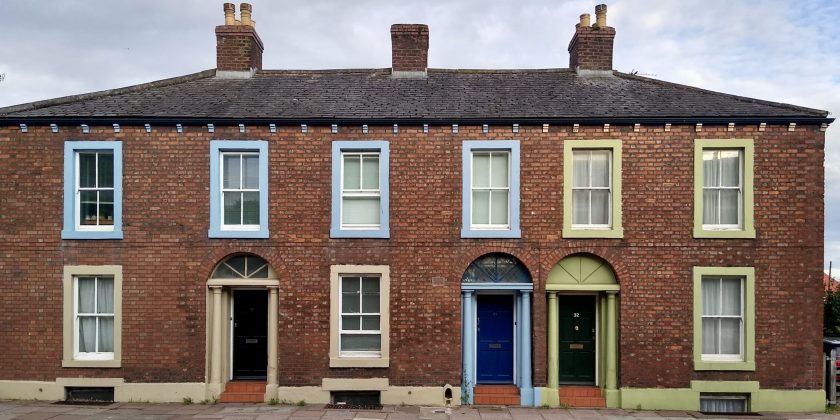Housing Secretary Michael Gove released the government’s Levelling Up White Paper on Wednesday February 2. The wide-ranging document was designed to flesh out one of the government’s flagship policies, and included plenty about the private rented sector.
The White Paper on Rental Reform, set to follow in spring of this year, is expected to confirm the finer details of the government’s plans, but the White Paper did make clear some of the intentions of the Boris Johnson administration.
Here at Propcert, we break down exactly what is being introduced by the government as part of its levelling up agenda and the impact this could have on the lettings sector.
The 12 missions
The Levelling Up White Paper included 12 missions that cover various important topics, ranging from transport, wellbeing, health, jobs, and of course housing.
These missions have been given legal status in a flagship Levelling Up and Regeneration Bill. The missions are as follows.
- 1. By 2030, pay, employment and productivity will have risen in every area of the UK, with each containing a globally competitive city, with the gap between the top performing and other areas closing;
- 2. By 2030, domestic public investment in R&D outside the Greater South East will increase by at least 40% and at least one third over the Spending Review period, with that additional government funding seeking to leverage at least twice as much private sector investment over the long term to stimulate innovation and productivity growth;
- 3. By 2030, local public transport connectivity across the country will be significantly closer to the standards of London, with improved services, simpler fares and integrated ticketing;
- 4. By 2030, the UK will have nationwide gigabit-capable broadband and 4G coverage, with 5G coverage for the majority of the population;
- 5. By 2030, the number of primary school children achieving the expected standard in reading, writing and maths will have significantly increased. In England, this will mean 90% of children will achieve the expected standard, and the percentage of children meeting the expected standard in the worst performing areas will have increased by over a third;
- 6. By 2030, the number of people successfully completing high-quality skills training will have significantly increased in every area of the UK. In England, this will lead to 200,000 more people successfully completing high-quality skills training annually, driven by 80,000 more people completing courses in the lowest skilled areas;
- 7. By 2030, the gap in Healthy Life Expectancy between local areas where it is highest and lowest will have narrowed, and by 2035 HLE will rise by five years;
- 8. By 2030, well-being will have improved in every area of the UK, with the gap between top performing and other areas closing;
- 9. By 2030, pride in place, such as people’s satisfaction with their town centre and engagement in local culture and community, will have risen in every area of the UK, with the gap between the top performing and other areas closing;
- 10. By 2030, renters will have a secure path to ownership with the number of first-time buyers increasing in all areas; and the government’s ambition is for the number of non-decent rented homes to have fallen by 50 per cent with the biggest improvements in the lowest performing areas;
- 11. By 2030, homicide, serious violence, and neighbourhood crime will have fallen, focused on the worst-affected areas;
- 12 By 2030, every part of England that wants one will have a devolution deal with powers at or approaching the highest level of devolution and a simplified, long-term funding settlement.
What rental reform plans are in the White Paper?
Landlords across the UK will be drastically impacted by the rental reform changes that are outlined in the Levelling Up White Paper.
One change that has caused concern among many landlords is the plan for Section 21 eviction powers to be abolished. Gove says that this will ‘end the unfair situation where renters can be kicked out of their homes for no reason’.
According to the lengthy document, a new standard called the Decent Homes Standard will be introduced. Those operating in the private rented sector will need to ensure that their home meets this industry standard (which was previously only for social housing).
Landlords must already adhere to existing standards and guidelines, yet the introduction of this new standard is likely to help combat the issues regarding rogue operators who continue to tarnish the reputation of landlords.
In addition to this, a landlord register, which could make it easier to fine and ban incompetent landlords from letting homes that put tenants in danger, will be consulted on. Meanwhile, a new Social Housing Regulation Bill will be introduced to try and prevent further tragedies such as Grenfell from occurring again.
The government also aims to boost homeownership with a new £1.5 billion Levelling Up Building Fund that provides small and medium-sized developers with loans and prioritises disadvantaged areas. The government is also committed to building more affordable social housing.
The White Paper also revealed plans to remove the 80/20 rule and instead transform brownfield sites in the North and Midlands, with metro mayors provided with £120 million of this funding.
What does the White Paper aim to achieve?
Housing Secretary Michael Gove says: “Levelling Up and this White Paper is about ending this historic injustice and calling time on the postcode lottery. This will not be an easy task, and it won’t happen overnight, but our 12 new national levelling up missions will drive real change in towns and cities across the UK, so that where you live will no longer determine how far you can go.”
Prime Minister Boris Johnson, who used levelling up as a key part of his 2019 election campaign, added: “From day one, the defining mission of this government has been to level up this country, to break the link between geography and destiny so that no matter where you live you have access to the same opportunities.”
“The challenges we face have been embedded over generations and cannot be dug out overnight, but this White Paper is the next crucial step.”Housing Secretary Michael Gove says: “Levelling Up and this White Paper is about ending this historic injustice and calling time on the postcode lottery. This will not be an easy task, and it won’t happen overnight, but our 12 new national levelling up missions will drive real change in towns and cities across the UK, so that where you live will no longer determine how far you can go.”
Prime Minister Boris Johnson, who used levelling up as a key part of his 2019 election campaign, added: “From day one, the defining mission of this government has been to level up this country, to break the link between geography and destiny so that no matter where you live you have access to the same opportunities.”
“The challenges we face have been embedded over generations and cannot be dug out overnight, but this White Paper is the next crucial step.”
What does the White Paper mean for landlords?
Adhering to industry standards has always been a priority but more than ever landlords must make sure that they are on top of their game.
A mandatory landlord register could help keep a watchful eye on landlords who provide a service that is below the standard required, but many are wary of such a register for a host of reasons.
The removal of Section 21 is another crucial change for landlords as it means their eviction powers will be lessened. However, many landlords have already got used to not using eviction powers throughout the past two years, with the effective eviction bans in place during much of the pandemic, and the court backlogs that have followed
Overall, the underlying message that landlords should take from the levelling up White Paper is to keep on top of their properties and be prepared for change – which is now coming, albeit still at a fairly slow rate.
PropCert aims to help the private and public sectors meet all legal requirements, keep tenants safe and keep landlords informed. We offer a wide range of services including gas safety certificates, EPCs, surveys, and more.
For a full list of services please click here and contact us here for any more information on what we provide.



